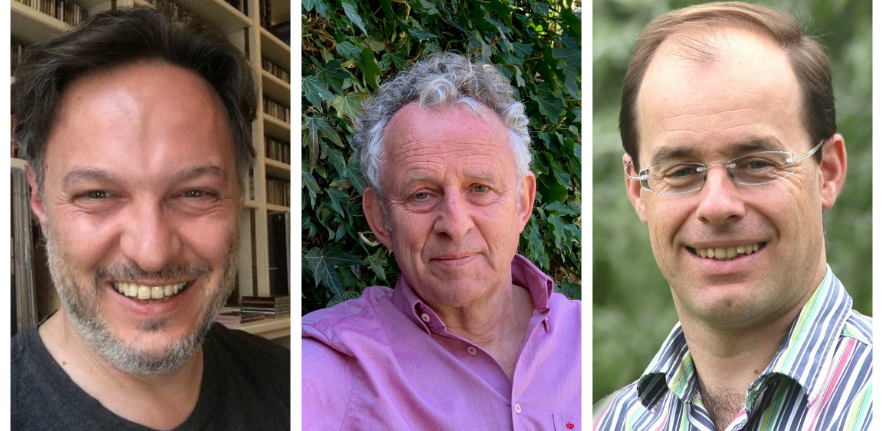
Submitted by Vanessa Bismuth on Thu, 22/04/2021 - 11:53
Professors Zoran HADZIBABIC, Sir Richard FRIEND and Henning SIRRINGHAUS are amongst the 12 University of Cambridge researchers to win advanced grants from the European Research Council (ERC), Europe’s premier research funding body. The Cavendish has the most grant winners within the University, which itself has the second-most winners overall.
Two hundred and nine senior scientists from across Europe were awarded grants in today’s announcement, representing a total of €507 million in research funding. The UK has 51 grantees in this year’s funding round, the most of any ERC participating country.
With funding totalling just over €7.1 million, the physicists work is set to provide new insight into the development of energy-efficient materials for a zero-carbon world, the classification of the nonequilibrium collective phenomena, and new combinations of optical excited states with magnetic spin states leading to new designs for LEDs and solar cells.
ERC grants are awarded through open competition to projects headed by starting and established researchers, irrespective of their origins, who are working or moving to work in Europe. The sole criterion for selection is scientific excellence. ERC Advanced Grants are designed to support excellent scientists in any field with a recognised track record of research achievements in the last ten years.
Professor Zoran Hadzibabic was awarded funding for his UNIFLAT project. One of the great successes of the last-century physics was recognising that complex and seemingly disparate systems are fundamentally alike. This allowed the classification of the equilibrium states of matter into classes based on their basic properties. At the heart of this classification is the universal collective behaviour, insensitive to the microscopic details, displayed by systems close to phase transitions.
A grand challenge for modern physics is to achieve such a feat for the far richer world of the nonequilibrium collective phenomena. “Our ambition is to make a leading contribution to this worldwide effort, through a series of coordinated experiments on homogeneous atomic gases in two-dimensional (2D) geometry,” said Hadzibabic. “Specifically, we will study in parallel three problems – the dynamics of the topological Berezinskii-Kosterlitz-Thouless phase transition, turbulence in driven systems, and the universal spatiotemporal scaling behaviour in isolated quantum systems far from equilibrium. Each of these topics is fascinating and of fundamental importance in its own right, but beyond that we will experimentally establish an emerging picture that connects them.”
Professor Sir Richard Friend has been awarded funding for his Spin Control in Radical Semiconductors (SCORS) project, which will explore the electronic properties of organic semiconductors that have an unpaired electron to give net magnetic spin. The project is based on a recent discovery that this unpaired electron can couple strongly to light, allowing very efficient luminescence in LEDs. Friend’s group will explore new combinations of optical excited states with magnetic spin states. This will allow new designs for LEDs and solar cells, and opportunities to control the ground state spin polarisation in spintronic devices.
Professor Henning Sirringhaus received funding for his NANO-DECTET project, for the development of next-generation energy materials. “Worldwide, only about a third of primary energy is converted into useful energy services: the other two thirds are wasted as heat in the various industrial, transportation, residential energy conversion and electricity generation processes,” said Sirringhaus. “Given the urgent need to mitigate the dangerous consequences of climate change, a waste of energy on this scale needs to be addressed immediately.
“Thermoelectric waste-heat-to-electricity conversion could offer a potential solution, but the performance of thermoelectric materials is currently insufficient. In this project we will use the unique physics of molecular organic semiconductors, as well as hybrid organic-inorganic semiconductors, to make efficient, low-temperature thermoelectric materials.”
Professor Andy Parker, Head of the Department of Physics said: “This is a fierce competition and only 8% of candidates were successful in this last ERC call so seeing three of our top researchers amongst the 12 Cambridge grantees is a colossal and fantastic achievement.
“All three of them are proposing greatly ambitious projects and I look forward to seeing what major insights will spring from this European funding.”
Adapted from a press release first published on University of Cambridge website.
